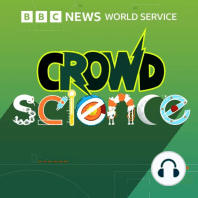32 min listen
How did we discover fire?
FromCrowdScience
ratings:
Length:
31 minutes
Released:
Feb 25, 2022
Format:
Podcast episode
Description
Controlling fire was a turning point in the development of human civilisation. But how did fire become part of the human toolkit? It's a question that has got Crowdscience listener Joseph wondering. He wants to know how humans first made fire and how that knowledge spread around the world, eventually developing into our industrial civilisations today.
Archaeologists have many different ideas and theories about this. Did humans learn the skill millions of years ago, and carry it with them as they migrated out of what is now Africa? Or was it a skill developed much later, after different groups had settled in different locations? Did people share the skill with each other or did different groups of people discover it individually?
Marnie Chesterton speaks to experts to try to piece together the archaeological clues to discover what kindled humankind's relationship with fire and flame. She hears about the early evidence of fire from Anand Jagatia, who visits Wonderwerk Cave in South Africa, and she speaks to an archaeologist who has found remains of burned flint suggesting campfire locations dating back hundreds of thousands of years in Israel. Marnie also tries her hand at making fire, Neanderthal style.
Contributors:
Dr Andrew Sorensen, Leiden University
Prof Nira Alperson-Afil, Bar-Ilan University
Prof Richard Wrangham, Harvard University
Dr David Morris, McGregor Museum
Candice Koopowitz, Simon Fraser University
Dr Katharine MacDonald, Leiden University
Presented by Marnie Chesterton and Produced by Hannah Fisher for BBC World Service
Image Credit: Getty Images
Archaeologists have many different ideas and theories about this. Did humans learn the skill millions of years ago, and carry it with them as they migrated out of what is now Africa? Or was it a skill developed much later, after different groups had settled in different locations? Did people share the skill with each other or did different groups of people discover it individually?
Marnie Chesterton speaks to experts to try to piece together the archaeological clues to discover what kindled humankind's relationship with fire and flame. She hears about the early evidence of fire from Anand Jagatia, who visits Wonderwerk Cave in South Africa, and she speaks to an archaeologist who has found remains of burned flint suggesting campfire locations dating back hundreds of thousands of years in Israel. Marnie also tries her hand at making fire, Neanderthal style.
Contributors:
Dr Andrew Sorensen, Leiden University
Prof Nira Alperson-Afil, Bar-Ilan University
Prof Richard Wrangham, Harvard University
Dr David Morris, McGregor Museum
Candice Koopowitz, Simon Fraser University
Dr Katharine MacDonald, Leiden University
Presented by Marnie Chesterton and Produced by Hannah Fisher for BBC World Service
Image Credit: Getty Images
Released:
Feb 25, 2022
Format:
Podcast episode
Titles in the series (100)
What Shapes Our Musical Taste?: Why does one person’s heavenly music sound like boring noise to another? by CrowdScience
